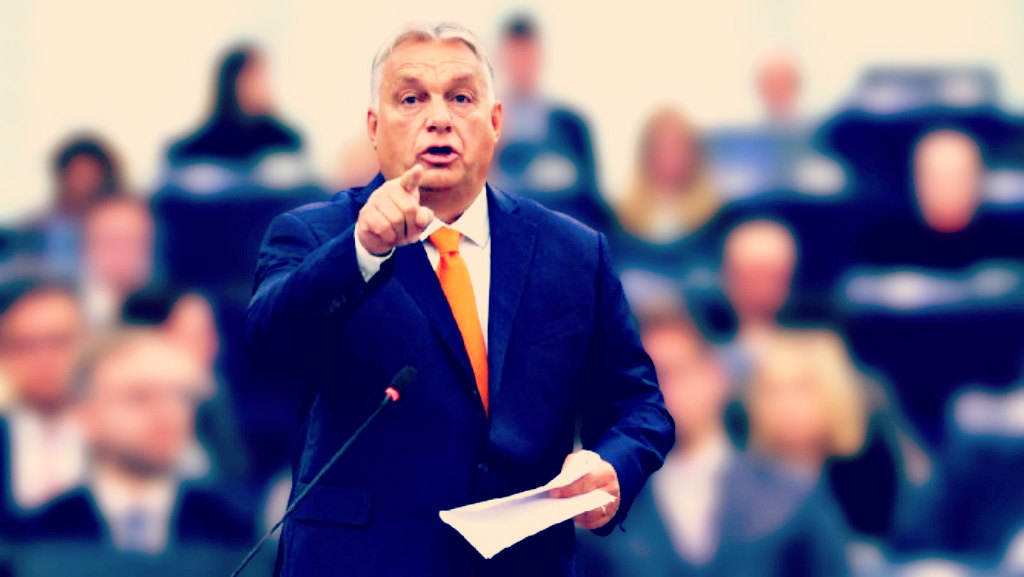Viktor Orbán, the Hungarian Prime Minister and a prominent conservative figure, has established himself as a contentious player in the European Union (EU), often clashing openly with its progressive agenda. Orbán’s rhetoric has escalated as he accuses the EU of echoing the oppressive nature of the Soviet Union, branding its liberal leadership, particularly under Ursula von der Leyen, as a “Brussels liberal gang.” Key issues have fueled this antagonism, including mass migration, responses to the war in Ukraine, climate policies, and LGBTQ+ rights. These conflicts have intensified to the extent that Orbán, concerned for his safety after the recent assassination attempt on Slovak Prime Minister Robert Fico, has had to bolster his personal security measures. He has further criticized leftist media and politicians, claiming their narratives incite hatred that could culminate in violence.
Following the assassination attempt on Fico, Orbán emphasized the necessity of reinforcing personal security, reflecting a broader anxiety regarding political violence in the region. During a recent interview, he articulated the dangers posed by a politically charged environment where “left-wing politicians and the media” foster a culture of hate. This heightened level of hostility has not only impacted domestic politics in Hungary but has also stirred caution within the EU regarding the potential ramifications of Orbán’s political strategies and alliances, especially as they relate to the forthcoming U.S. elections.
Furthermore, Orbán’s personal alliance with Donald Trump presents a unique challenge to EU leaders. The Hungarian Prime Minister recently spoke with Trump to convey his best wishes ahead of the elections. The dynamic of this relationship has led to apprehension among EU liberal factions, who fear Orbán may leverage this connection at upcoming European meetings. There is speculation that Orbán could extend an invitation to Trump to join EU leaders via video link, amplifying existing tensions between Hungary and the EU. EU diplomats have expressed unease at the prospect of Orbán’s growing influence and the potential implications of his ties to Trump on European politics.
The upcoming informal EU summit in Budapest on November 8 adds another layer of complexity to these dynamics. Scheduled for just one day after a dinner where EU leaders will analyze the results of the U.S. elections, this meeting could be pivotal in shaping Hungary’s relations with the bloc. Orbán’s recent actions have drawn criticism from various member states, particularly his interactions with other global leaders, including Vladimir Putin and Xi Jinping, which he pursued without significant consultation with EU affiliates. This perceived lack of transparency contributes to a growing distrust among other EU nations, further isolating Hungary within the larger framework of European politics.
Orbán’s approach to governance and international relations represents a significant departure from the EU’s mainstream policies, pushing back against the prevailing liberal consensus. His administration’s stance on immigration and societal issues positions Hungary at odds with the European Commission’s directives, which has been a source of friction. This divergence is exemplified by Orbán’s claims that Poland’s government was installed by the EU to disrupt the previously established populist leadership, reiterating a belief that Hungary is now under scrutiny as the next target for similar interventions aimed at destabilizing his administration.
In summary, Viktor Orbán’s confrontational relationship with the EU and his strategic alliances, notably with Donald Trump, position Hungary as a focal point of contention in European politics. The concerns surrounding his personal safety, the intense media scrutiny, and the backlash from other EU nations underscore the fragile balance of power within the bloc. As Orbán continues to assert his nationalist and conservative agenda, the ramifications of his actions—both domestic and international—will likely resonate throughout Europe, shaping political discussions and alignments in the years to come.

